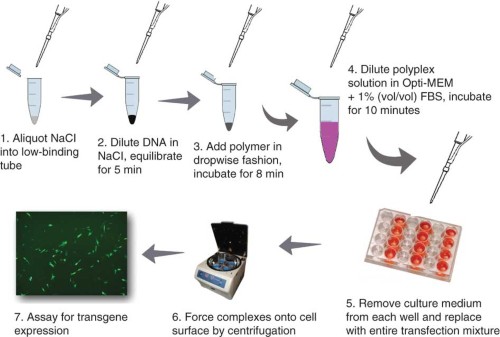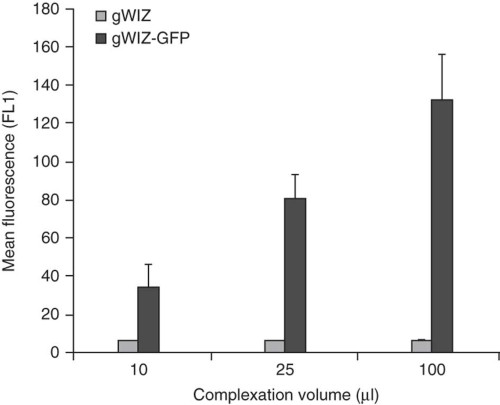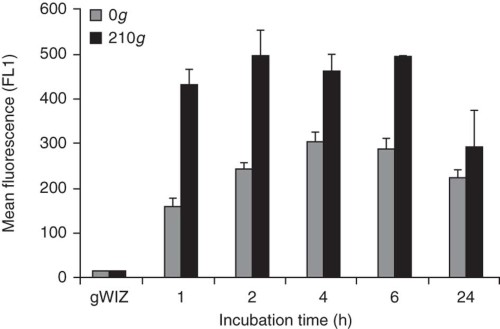A simple and rapid nonviral approach to efficiently transfect primary tissue–derived cells using polyethylenimine
This protocol outlines steps for optimizing the transfection of adherent primary mammalian cells using the readily available off-the-shelf cationic polymer, 25-kDa branched polyethylenimine (bPEI25). Transfection efficiency of cationic polymers
This protocol outlines steps for optimizing the transfection of adherent primary mammalian cells using the readily available off-the-shelf cationic polymer, 25-kDa branched polyethylenimine (bPEI25). Transfection efficiency of cationic polymers varies among cell lines and is highly dependent on the conditions and environment in which complexes are formed. Factors requiring optimization include the salt concentration, volume, incubation time, mixing order and ratio of polymer to DNA. In this transfection protocol, complexes are prepared in 30 min, with analysis 24 h later; thus, experiments can be completed in 2 d. In this protocol, as an example, we describe the parameters we have optimized for the transfection of bone marrow stromal cells and normal human foreskin fibroblasts. By using this protocol, we have obtained transfection efficiencies comparable to lipofection. An appropriately optimized protocol enhances the utility of cationic polymers in transfecting mammalian cells, thereby providing an effective alternative to expensive commercial reagents.
Figures ( 0 ) & Videos ( 0 )
 Figure 1
Figure 1 Figure 2 : Effect of complexation volume on transfection efficiency.
Figure 2 : Effect of complexation volume on transfection efficiency. Figure 3 : Effect of PEI-to-pDNA weight ratios used in complex formation on transfection efficiency.
Figure 3 : Effect of PEI-to-pDNA weight ratios used in complex formation on transfection efficiency. Figure 4 : Effect of centrifugation and incubation time on transfection efficiency.
Figure 4 : Effect of centrifugation and incubation time on transfection efficiency.

 Figure 1
Figure 1 Figure 2 : Effect of complexation volume on transfection efficiency.
Figure 2 : Effect of complexation volume on transfection efficiency. Figure 3 : Effect of PEI-to-pDNA weight ratios used in complex formation on transfection efficiency.
Figure 3 : Effect of PEI-to-pDNA weight ratios used in complex formation on transfection efficiency. Figure 4 : Effect of centrifugation and incubation time on transfection efficiency.
Figure 4 : Effect of centrifugation and incubation time on transfection efficiency.